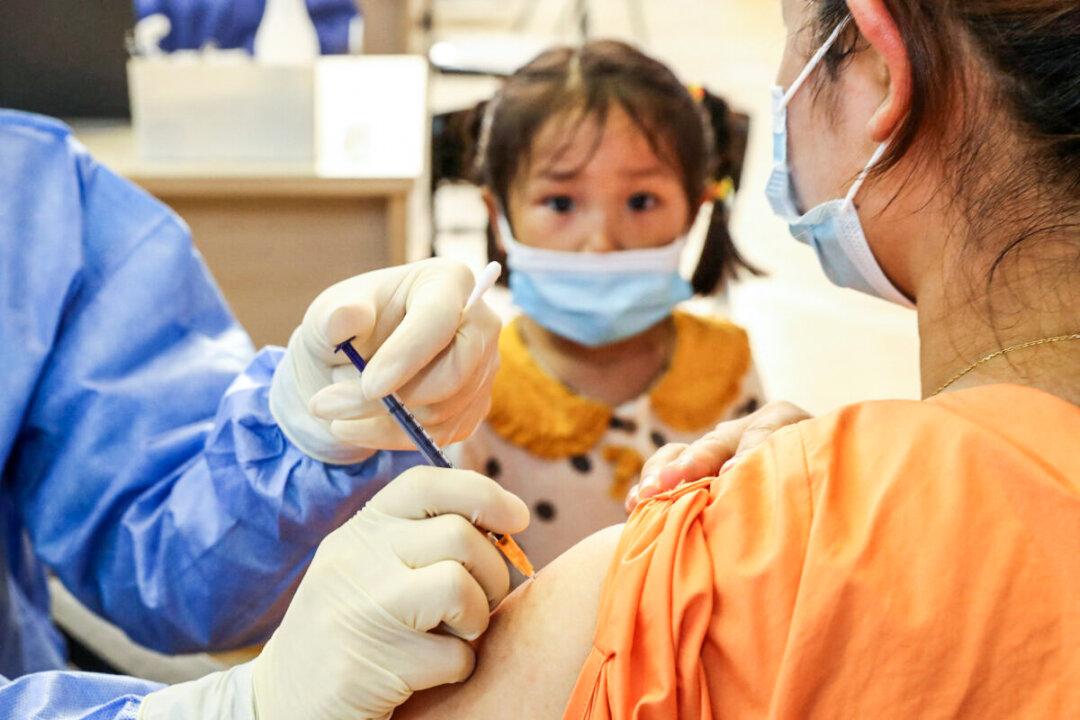Children as young as 3 years old will start receiving vaccine doses in China as the country battles what Beijing has described as “rapidly developing” local COVID-19 clusters.
City and provincial authorities in at least seven provinces have issued notices in recent days requiring children between 3 and 11 years of age to be inoculated, widening China’s vaccination campaign as the regime looks to lock down cities and quarantine en masse those suspected of carrying the virus.





